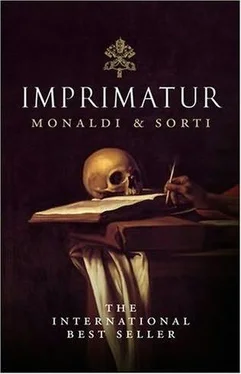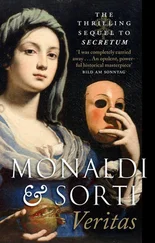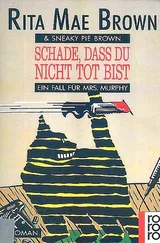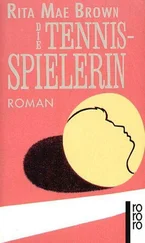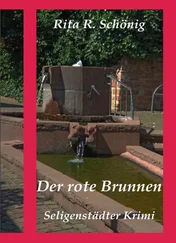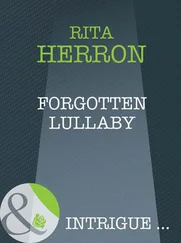Rita Monaldi - Imprimatur
Здесь есть возможность читать онлайн «Rita Monaldi - Imprimatur» весь текст электронной книги совершенно бесплатно (целиком полную версию без сокращений). В некоторых случаях можно слушать аудио, скачать через торрент в формате fb2 и присутствует краткое содержание. Жанр: Исторический детектив, на английском языке. Описание произведения, (предисловие) а так же отзывы посетителей доступны на портале библиотеки ЛибКат.
- Название:Imprimatur
- Автор:
- Жанр:
- Год:неизвестен
- ISBN:нет данных
- Рейтинг книги:5 / 5. Голосов: 1
-
Избранное:Добавить в избранное
- Отзывы:
-
Ваша оценка:
- 100
- 1
- 2
- 3
- 4
- 5
Imprimatur: краткое содержание, описание и аннотация
Предлагаем к чтению аннотацию, описание, краткое содержание или предисловие (зависит от того, что написал сам автор книги «Imprimatur»). Если вы не нашли необходимую информацию о книге — напишите в комментариях, мы постараемся отыскать её.
Imprimatur — читать онлайн бесплатно полную книгу (весь текст) целиком
Ниже представлен текст книги, разбитый по страницам. Система сохранения места последней прочитанной страницы, позволяет с удобством читать онлайн бесплатно книгу «Imprimatur», без необходимости каждый раз заново искать на чём Вы остановились. Поставьте закладку, и сможете в любой момент перейти на страницу, на которой закончили чтение.
Интервал:
Закладка:
I decided to abandon that narrow and now dangerous space and slipped away up the stairs. Here, however, after rushing up the first steps, I found myself face to face with Abbot Melani. He was coming down unhurriedly, stepping prudently.
"So they have really locked us up, my boy," said he, with that strange French roiling of his V.
"What are we to do now?" I asked.
"Nothing."
"But we shall die of the pestilence."
"We shall see," he said with an indefinable nuance in his tone that I had already come to recognise.
Then he changed direction and led me up to the first floor. We went right to the end of the corridor and entered the large chamber which the old man who had just died shared with his companion Pompeo Dulcibeni from the Marches. A curtain divided the room in two. We drew it aside and there, crouching on the floor and fumbling in his little bag, we found the chirurgeon Cristofano.
In front of him, sprawled across the armchair, was Signor di Mourai, still half-dressed as Cristofano and the medical examiner had left him that morning. The dead man was somewhat malodorous because of the September heat and the foot bath in which his flesh was already beginning to rot, the Bargello having ordered that nothing was to be moved until the end of the roll-call.
"Boy, I asked you this morning kindly to clean up that noisome water on the floor," ordered Cristofano, with a note of impatience in his voice.
I was about to reply that I had done so immediately after he had ordered me to; but glancing down, I saw that around the basin there were indeed still several small puddles. I did as I had been commanded without protesting, using cloth and mop and cursing myself for not having been more careful that morning. In fact, I had until then never seen a corpse in all my life and I must have been confused by the emotion.
Mourai seemed even more meagre and bloodless than when he had arrived at the Locanda del Donzello. His lips were slightly parted and from them still dripped a little of that greenish froth which Cristofano, wishing to open his mouth a little more, began to remove with a cloth. The chirurgeon took pains, however, to touch this only after wrapping his own hand in another piece of cloth. As he had already done that morning, he scrutinised the dead man's throat carefully and sniffed at the froth. Then he got Abbot Melani to help him arrange the body on the bed. Once removed from the basin, the feet were greyish and from them emanated a dreadful odour of death which took our breath away.
Cristofano donned a pair of gloves in brown material which he took from the little bag. He returned to his inspection of the oral cavity, then observed the thorax and the groin. First, however, he prodded delicately behind the ears; then turned his attention to the armpits, removing the clothing so as to be able to observe the soft flesh with its covering of sparse hairs. Lastly, he pressed repeatedly with his fingertips the soft skin halfway between the organs of generation and the beginning of the thighs. He removed his gloves carefully and placed them in a sort of little cage divided into two compartments by a horizontal grate. In the lower half, there was a small basin into which he poured a brownish liquid, then closed the door of the compartment in which he had placed the gloves.
"It is vinegar," he explained. "It purges the pestiferous humours. One never knows. That being said, I stand by my idea: this really does not seem to me to be the infection. For the time being, we may rest our minds."
"You told the Bargello's men that it might be a congestion," I reminded him.
"That was only an example, given to gain time. I already knew from Pellegrino that Mourai ate only broths and clear soups."
"That is true," I confirmed. "Even this morning at dawn, he asked for one."
"Ah yes? Tell us more," asked the physician, showing interest.
"There is not much to be said: he asked my master for a clear soup with milk when, as every morning, he went to wake up Signor di Mourai and the gentleman from the Marches with whom he shared his room. But Signor Pellegrino was busy and so he asked me to prepare it. I went down to the kitchen, made it and brought it to him."
"Were you alone?"
"Yes."
"Did anyone come into the kitchen?"
"No."
"Did you ever leave the milk unattended?"
"Not even one moment."
"Are you sure?"
"If you are thinking that something in the broth might have harmed Signor di Mourai, know that I administered it to him personally, for Signor Dulcibeni had already gone out; and I myself drank a beaker of it."
The chirurgeon asked no more questions. He looked at the corpse and added: "I cannot perform an autopsy here and now, nor do I believe that anyone will do so, given the suspicion of plague. However, I repeat, this does not look to me like the infection."
"But then," I asked, "why have we been placed in quarantine?"
"Through excess of zeal. You are still young, but I believe that in these parts they remember the last visitation all too well. If nothing new occurs, they will soon realise that there is no danger. This old gentleman who, in any case, already seems not to have been enjoying good health, was not infected. And what is more, I would say that neither you nor I are. However, we have no choice: we shall have to pass poor Signor di Mourai's body and clothing out through the window, as the Bargello ordered. Each one of us will, moreover, have to sleep in a separate chamber. There are enough apartments in this inn, if I am not mistaken," said he, questioning me with his eyes.
I nodded in agreement. On each floor, four chambers opened onto the two branches of the corridor: one rather spacious apartment just next to the stairs, followed by a very small one and then an L-shaped one, while at the end of the corridor was the largest room, the only one to give not only onto the alleyway but onto the Via dell'Orso. This would mean occupying all the apartments on the first and second floors, but I knew that my master would not complain too much about that, since no other guests could join us for the time being.
"Dulcibeni will sleep in my chamber," added Cristofano. "He certainly cannot remain here with the corpse. However," he concluded, "if there are no other cases, true or false, in the next few days, they will release us."
"In how much time exactly?" asked Atto Melani.
"Who can tell? If anyone in the neighbourhood should feel unwell, perhaps only because he has drunk bad wine or eaten fish that has gone off, they will at once think of us."
"Then we risk remaining here forever," said I, already feeling suffocated by the thick walls of the inn.
"Forever, no. But calm down now: have you not been here, night and day, for the past few weeks? I have rarely seen you leave the house; you are already used to being shut in."
That was true. My master had taken me into service out of pity, knowing that I was alone in the world. And I worked from morning till night.
It happened early last spring, when Pellegrino had come to Rome from Bologna, where he worked as a cook, to take over the activity of the Donzello after the misfortune which had befallen his cousin, the late innkeeper, Signora Luigia de Grandis Bonetti. She, poor woman, had given up the ghost following the physical consequences of an attack suffered in the street at the hands of two gypsy scoundrels, who were trying to rob her of her purse. The hostelry had for thirty years been run by Luigia, together with her husband Lorenzo and their son Francesco, and subsequently by Luigia alone, when she had been widowed and bereaved of her son. For a time, it was quite well known and received guests from all over the world. Such was Luigia's veneration for Duke Orsini, the owner of the little building in which the inn was situated, that she bequeathed to him all that she possessed. The Duke, however, made no objection when Pellegrino (who had to feed his wife, an unmarried daughter and a little girl) arrived from Bologna and begged His Grace to allow him to continue his cousin Luigia's flourishing activity.
Читать дальшеИнтервал:
Закладка:
Похожие книги на «Imprimatur»
Представляем Вашему вниманию похожие книги на «Imprimatur» списком для выбора. Мы отобрали схожую по названию и смыслу литературу в надежде предоставить читателям больше вариантов отыскать новые, интересные, ещё непрочитанные произведения.
Обсуждение, отзывы о книге «Imprimatur» и просто собственные мнения читателей. Оставьте ваши комментарии, напишите, что Вы думаете о произведении, его смысле или главных героях. Укажите что конкретно понравилось, а что нет, и почему Вы так считаете.
